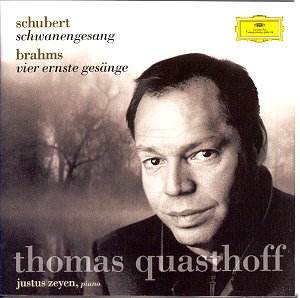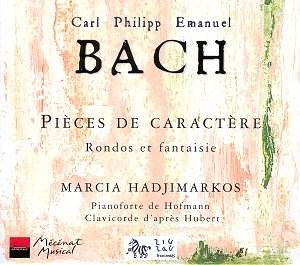 Composer: Carl Philipp Emanuel Bach
Composer: Carl Philipp Emanuel Bach
Works: Sonatas in g minor, c minor, D major, f sharp minor, G major, e minor; Rondo in A major, d minor, c minor; Andante con tenerezza
Performers: Mikhail Pletnev – Piano
Recording: Recorded in Teldec-Studio, Berlin in October 1998
Label: Deutsche Grammophon 459 614-2 [78:27]
Carl Philipp Emanuel Bach, the often overshadowed son of Johann Sebastian Bach, occupies a unique and pivotal place in the evolution of Western music. His works, particularly those written for keyboard, reflect a transition from the Baroque style to the early Classical idiom. The collection of sonatas and rondos presented here by Mikhail Pletnev captures the essence of C. P. E. Bach’s innovative spirit, illuminating the composer’s departure from the rigidity of his father’s musical doctrine. The selection features six sonatas and three rondos, culminating in the poignant Andante con tenerezza, showcasing a variety of emotional landscapes that challenge the simplistic categorization of C. P. E. as merely a precursor to the Classical period.
Pletnev’s interpretation of these works is nothing short of revelatory. His approach brings a luminous clarity and lightness to the music, creating a sonic experience that transcends the limitations of a modern piano while still embracing its full capabilities. The g minor sonata, for instance, opens with a dramatic flourish that Pletnev navigates with both technical prowess and expressive depth. The fluidity of his phrasing allows the music to breathe, each note resonating with emotional significance. The contrasting moods within the sonatas are highlighted effectively; the sudden shifts from fortissimo to pianissimo, from lyrical passages to aggressive outbursts, exemplify C. P. E. Bach’s mastery of the “affect” in music.
One striking aspect of Pletnev’s performance is his ability to maintain the integrity of each sonata’s emotional spectrum, particularly in the f sharp minor sonata, which oscillates between introspection and fiery virtuosity. This sonata, with its intricate counterpoint and unexpected harmonic turns, is a testament to C. P. E.’s forward-thinking compositional style. Pletnev’s execution reveals not just a technical command, but an understanding of the emotional undercurrents that drive the music. His interpretation mirrors the Sturm und Drang aesthetic that C. P. E. Bach’s contemporaries would later embrace, making connections that resonate with the likes of Beethoven and Schumann.
The recording quality, as expected from Deutsche Grammophon, is exemplary. The engineering captures Pletnev’s nuanced touch with remarkable fidelity, allowing the listener to appreciate the subtleties of articulation and dynamics. The piano’s clear, bell-like tones are complemented by a rich harmonic palette, creating an immersive listening experience that feels both intimate and expansive. The spatial balance between the piano and the acoustic of the recording space enhances the overall clarity, making each sonorous detail discernible.
Pletnev’s interpretation stands out in a field that includes notable recordings by artists such as Andreas Staier and Pierre-Laurent Aimard, both of whom have approached C. P. E. Bach with their unique perspectives. While Staier’s performances on period instruments highlight the historical context of the works, Pletnev’s modern piano interpretation presents a vibrant and immediate vision that commands attention. His ability to evoke the spirit of C. P. E. Bach while simultaneously engaging with the broader trajectory of Western music is commendable.
This collection of C. P. E. Bach’s keyboard works, through Pletnev’s exceptional artistry, successfully dismantles the long-held notion of the composer as merely a transitional figure. Instead, it reveals a composer of profound emotional depth and innovation, whose music deserves its rightful place in the repertoire. The combination of Pletnev’s virtuosic technique, insightful interpretations, and the superb engineering of Deutsche Grammophon culminates in a recording that is not only enjoyable but essential for anyone seeking to understand the complexities of C. P. E. Bach’s genius.



